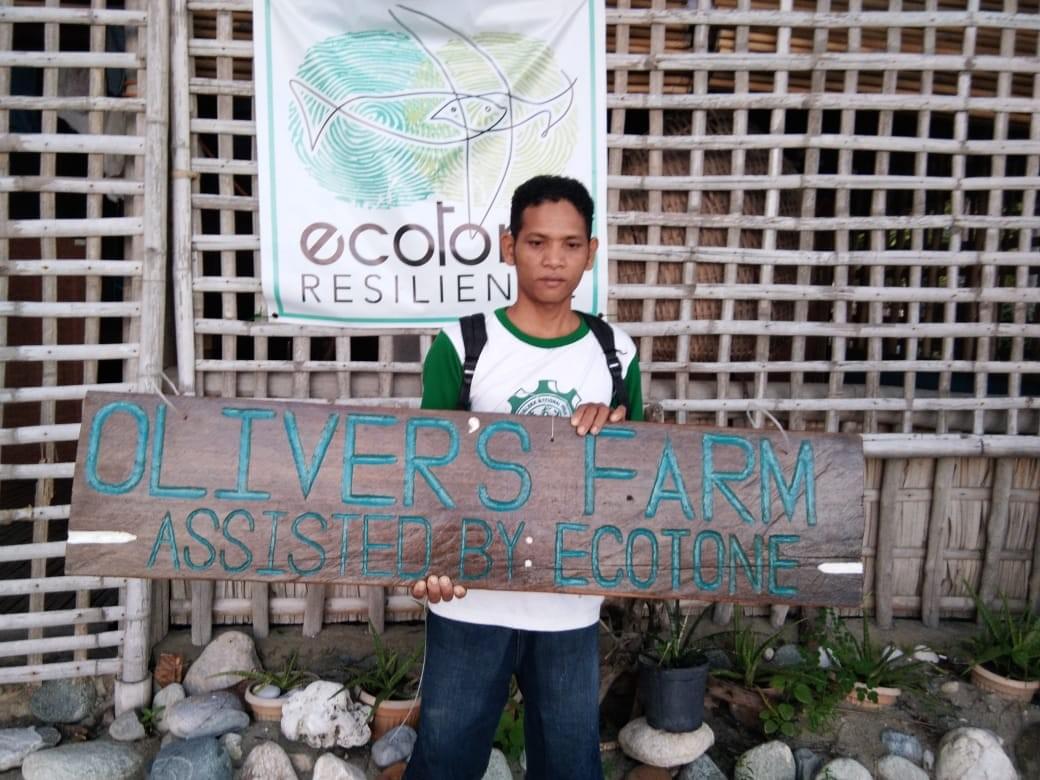In Udalo, north of Mindoro Island in the Philippines, agriculture is the main activity and the main source of income. Through the "Model Farmer" project, initiated at the end of 2018, ER supports local farmers in transforming their farm into an agro-ecological model. We thus work with passionate and committed pioneer farmers, who are eager to learn and apply agro-ecological and permacultural practices on their farm. It is a two-way exchange, where they use and teach us their know-how, traditional techniques, their intimate knowledge of the territory, of local plants and soils.
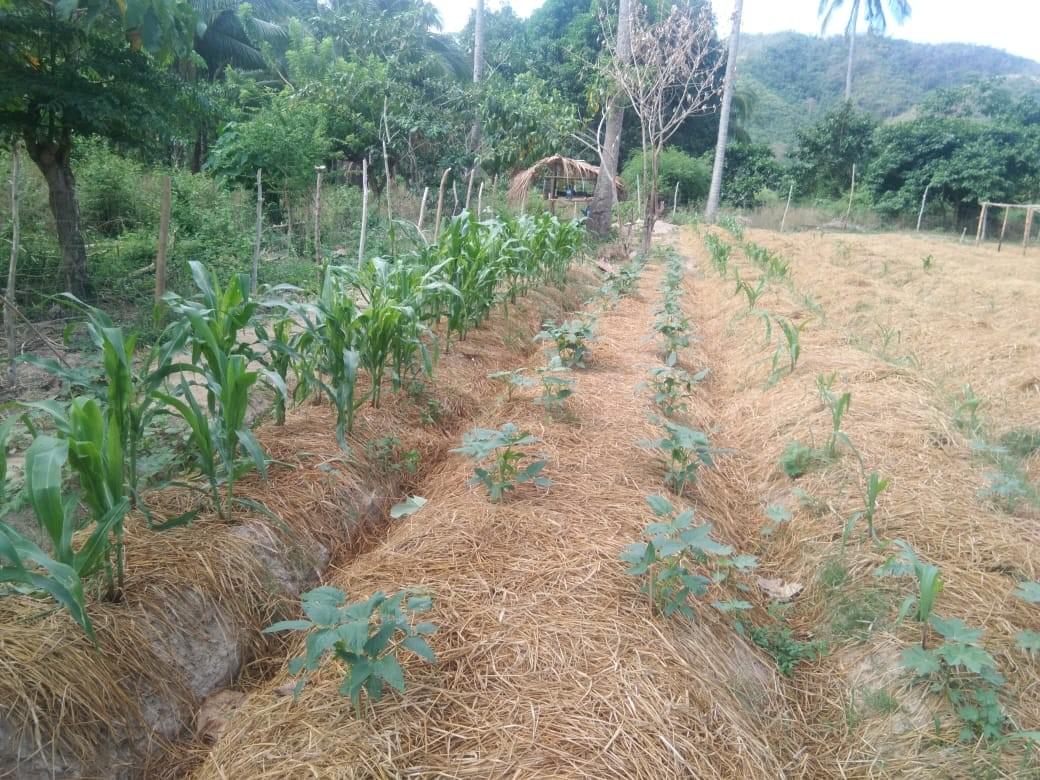
Oliver was the first farmer to partner up with us on the Model Farmer project, to convert his farm to a more environmentally sustainable and economically viable system. His local knowledge and know-how, combined with the technical expertise of our team, created a fertile ground that bared fruits within the first year of the project.
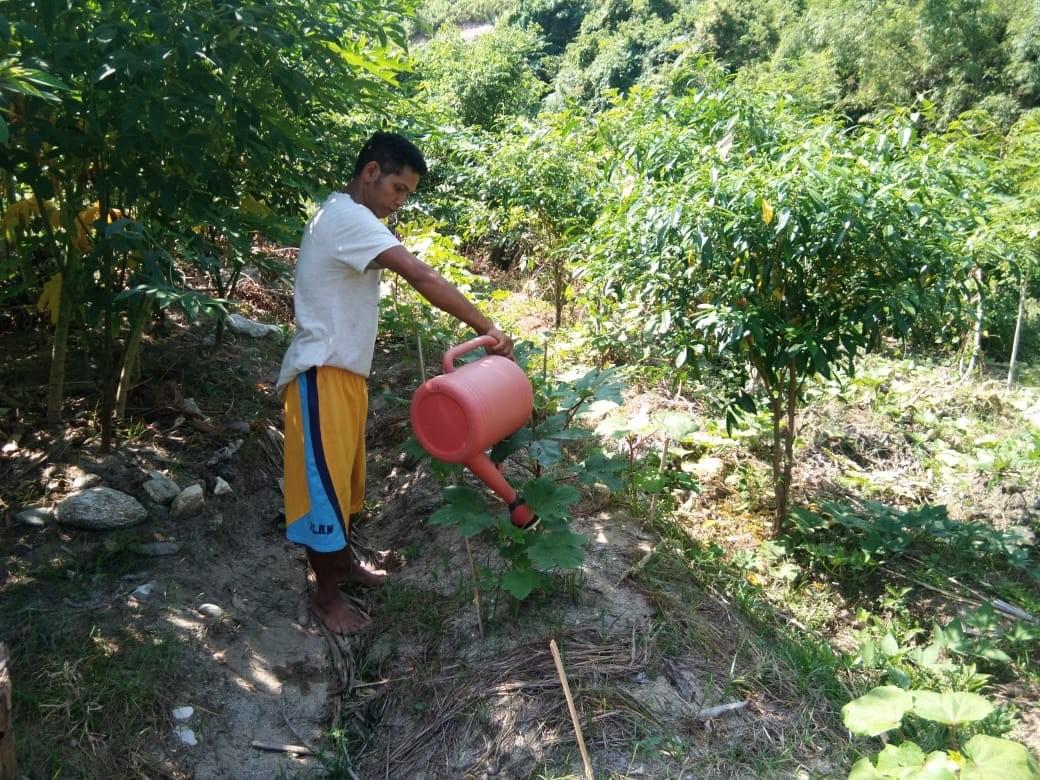
Like most Irayas (the indigenous people from Udalo), Oliver is waging a daily and silent struggle to support his family. In an area where there are few alternative livelihoods and job opportunities, he needs to produce food for his family of 8 children, and to generate sufficient income to cover their other basic and educational needs.
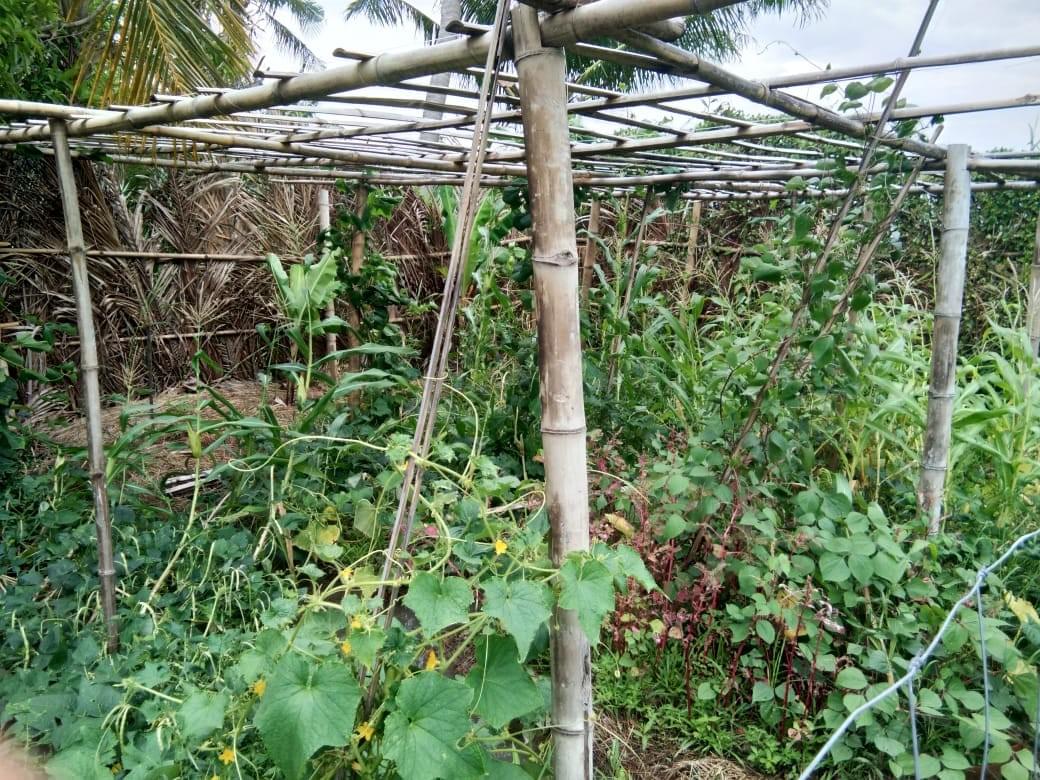
Endowed with ancestral knowledge and with the ability to “read” cycles and natural elements, the farmers of Udalo are also the heirs of practices resulting from the “green revolution” and of the introduction of hybrid and/or improved seeds. Although these improved varieties have the potential to produce three times more than local traditional seeds, they also require (a lot of) chemical inputs (fertilisers, pesticides) that local farmers cannot afford, not to mention the negative impact on the land fertility over the years.
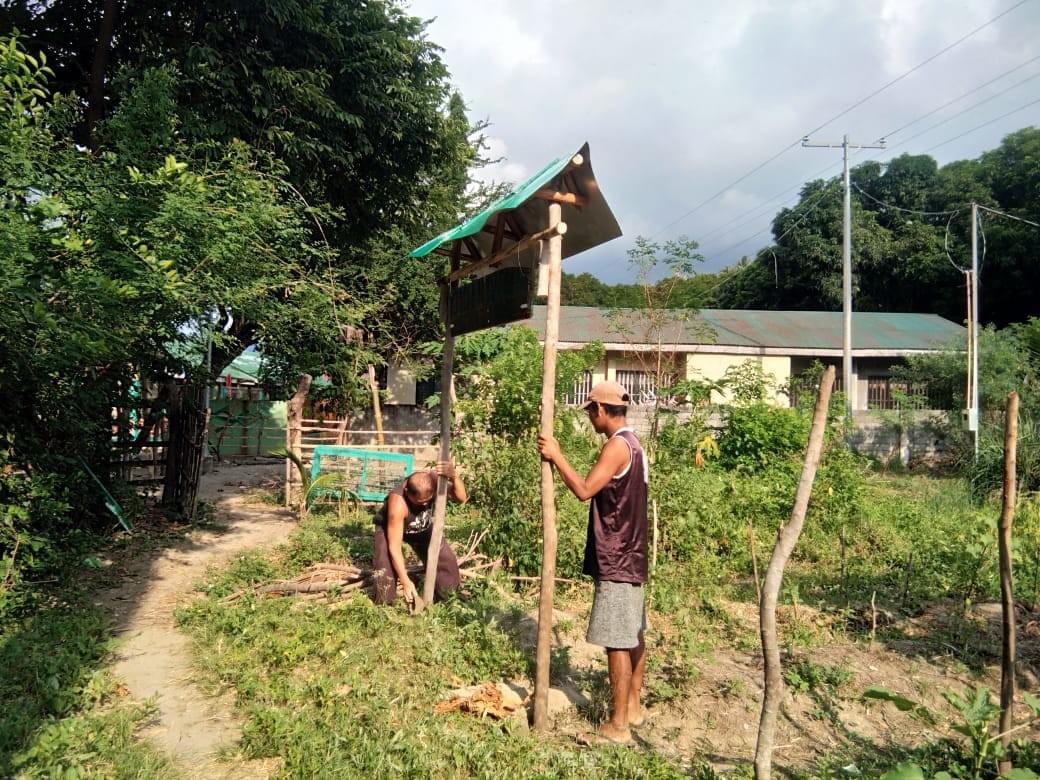
As the first and most invisible actors of the supply chain, small producers like Oliver suffer from market instability and lack of local commercial outlets. They have no power nor control over their sale prices and the margins they receive. Their paltry income maintains them in an economic and social precariousness. Their low and unsteady yields are affected by increasingly unpredictable climatic episodes (typhoons), damaging their crops every year.
